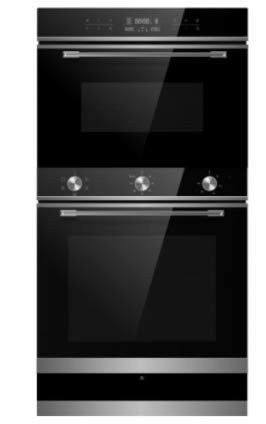Ten Common Misconceptions About Hob And Oven That Aren't Always True
Understanding Cooker Hobs and Ovens: A Comprehensive Guide
In modern cooking areas, cooker hobs and ovens are basic appliances that specify cooking habits and preferences. Selecting Electric Oven & Hob of these devices can significantly improve culinary experience, improve performance, and even elevate home looks. This short article will check out various elements of cooker hobs and ovens, shedding light on types, features, advantages, and upkeep pointers, while also attending to common questions.
Kinds Of Cooker Hobs
Cooker hobs come in different types, each with distinct features accommodating various cooking designs. Here's an introduction of the most typical types:
Type
Description
Pros
Cons
Gas Hob
Utilizes burner for heating; deals immediate temperature control.
Instant heat and outstanding control.
Needs a gas connection; may be less safe.
Electric Hob
Runs using electric coils or smooth surface; warms up slowly.
Even heat distribution; simple to tidy.
Takes longer to heat up; less control.
Induction Hob
Uses magnetic fields to heat pots directly, making it energy effective.
Quick cooking; energy-efficient.
Needs suitable pots and pans; more pricey.
Halogen Hob
Utilizes halogen bulbs for instant heat; provides instantaneous temperature level adjustment.
Extremely quickly heating; noticeable heat.
Consumes more power; may not evenly heat.
Picking the Right Hob
When selecting a hob, think about the following aspects:
- Cooking Style: Do you prefer the accuracy of gas, the benefit of electric, or the efficiency of induction?
- Cookware Compatibility: Ensure your pots and pans are compatible with the type of hob.
- Kitchen Layout: Space and style often dictate the kind of hob that fits your kitchen.
Types of Ovens
Likewise, ovens have evolved considerably, offering various cooking approaches that can complement particular culinary styles. Here are the common types of ovens:
Type
Description
Pros
Cons
Traditional Oven
Standard baking oven that uses electric or gas heat from the top and bottom.
Versatile; excellent for baking.
Longer preheat and cooking times.
Convection Oven
Utilizes a fan to distribute hot air, enabling even cooking and much faster baking times. Disperses heat uniformly.
Faster cooking; even browning.
Somewhat more costly; may dry food out.
Steam Oven
Cooks food using steam, maintaining nutrients and moisture.
Much healthier cooking; maintains food taste.
Takes longer to cook; more expensive.
Microwave
Utilizes electro-magnetic radiation to heat food rapidly.
Immediate cooking; ideal for reheating.
Restricted cooking techniques; may affect texture.
Choosing the Perfect Oven
When picking an oven, keep these consider mind:
- Cooking Habits: Are you a frequent baker or more likely to reheat leftovers?
- Area Requirements: What are the measurements of your kitchen?
- Budget: Consider not just the purchase price but also energy effectiveness in time.
The Importance of Cooker Hobs and Ovens in Cooking
The right mix of cooker hob and oven can enhance culinary abilities, permitting food lovers to experiment and produce a wide variety of meals. Here are a few reasons these appliances are crucial:
- Efficiency: Modern hobs and ovens included features that optimize cooking energy and times usage.
- Flexibility: Different cooking methods (bake, grill, roast, steam, and so on) expand the range of meals one can prepare.
- Visual Appeal: Stylish styles can raise the total look of a kitchen, making it both functional and inviting.
Often Asked Questions (FAQs)
1. What maintenance do cooker hobs and ovens need?
- Regular cleansing after use to avoid accumulation.
- Routine checks for gas leaks (for gas hobs).
- Ensuring the electrical connections are safe and secure.
2. Can I use any pots and pans on an induction hob?
No, induction hobs require ferrous pots and pans (i.e., magnetic) to operate. This suggests stainless-steel and cast iron work, while glass and aluminum pots may not.
3. How do I identify the right size oven for my kitchen?
Measure your available area and consider the volume of cooking you typically perform. Requirement ovens vary in size, and larger models usually have additional functions.
4. Are convection ovens much better than standard ovens?
It depends on personal preference. Stove offer faster and more even cooking but may not be ideal for all baking recipes, especially those requiring specific temperatures.
5. What is the typical life expectancy of a cooking hob and oven?
With proper care, both hobs and ovens can last anywhere from 10 to 20 years, depending upon frequency of usage and maintenance.
Picking the best cooker hob and oven not just enhances the cooking procedure but can likewise redefine one's cooking experience. Understanding the various types, their benefits, and upkeep will empower consumers to make educated decisions, ensuring that their kitchen is geared up to manage meals from the most basic to the most elaborate. Knowledge about the abilities of these important devices permits cooking imagination and performance, eventually leading to a more enjoyable cooking journey.
